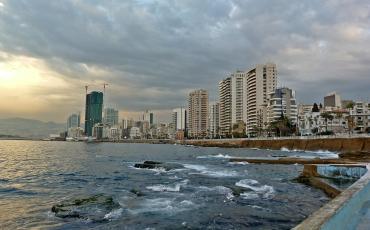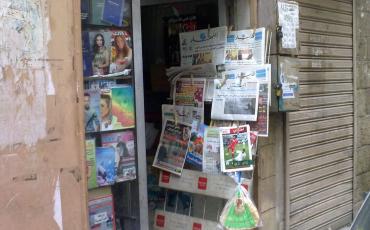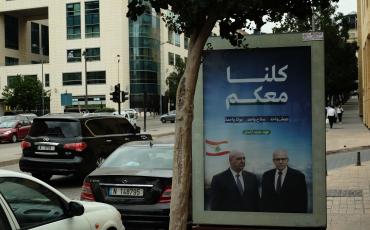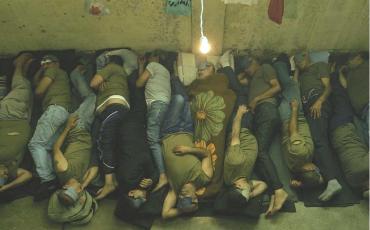For being a small country, Lebanon has an amazing media landscape: Eight TV stations compete for a market of only four and a half million people. Nabil Dajani, professor at the American University of Beirut on how the media contribute to driving Lebanese society apart instead of uniting it.
Alsharq: Mr. Dajani, you’ve been observing the Lebanese media landscape since about 1970. At that time, there were only two Lebanese TV channels: CLT and Télé Orient.
Nabil Dajani: Actually, it began with one TV channel. I am telling my students I am a dinosaur. I was born when there was no television; today they cannot imagine having no television.
Today almost all TV channels in Lebanon are affiliated to a political party – Future TV to the Future Movement, al-Manar to Hezbollah - you name it. Earlier private channels had no political background.
No, they did have a political background, but different from today. The first Lebanese station was basically two-thirds financed by French funds, the second by Americans. But the difference was more cultural; now it is political.
Last year you published an article titled “The myth of media freedom in Lebanon.” A provocative title.
In Lebanon, yes, there is freedom, but it is freedom from the government, because there is no government. What we call “government” is basically a coalition of tribal, sectarian chieftains, who agree to work together. But actually, there is no freedom from sectarian tribes. So, the media outlets cannot be free from censorship. They cannot dare to write something that their group or chief opposes. The Lebanese population is being divided across different sects, because each medium, each outlet speaks for a sect of a certain political or religious orientation.
Usually, theory ascribes an integrative function to media – you say the media instead fragment the country.
It integrates people from the same religious group, but antagonizes one group against the other.
Isn’t the Lebanese media market too small for one to only focus on his or her very own group?
Well, here you are talking in a western, economic outlook. All television stations in Lebanon, all media are losing money. Yet, those who run the media are millionaires. So they are independent from their audience or advertising. They depend more on the subsidizers. For example: If you subscribe to a newspaper in Lebanon, you pay more than if you buy the newspaper from the newsstand every day. That is because the day the newspapers do not come out, they make money.
So when they print, they lose money?
Yes, because there are not many people who buy them. The newspaper publisher depends mainly on subsidies. The bulk of the subsidies comes from government subscriptions. In other words: If I run a certain newspaper, I will go to a certain head of an Arab country and say: I have a newspaper, I am a loyal supporter of yours. And also: I do not need money from you, all I need is subscriptions. Distribute my newspaper in your country. In all Arab countries, the Lebanese press has a certain prestige. That is why newspapers do not care for your or my subscription, they call for governments’ and influential people’s subscriptions.
Let us get back to TV: You say all Lebanese TV stations are losing money and just depend on their political shareholders. Which influence does this have on content?
TV news is indeed the most important source of information for the public. But the point is: We do not have one public, we have several publics. Each public depends on the media it looks for. Let’s say I am a Hezbollah supporter. I only consume al-Manar TV and al-Akhbar or al-Safir newspapers. If I am opposed to Hezbollah, I focus on LBCI, MTV and al-Nahar newspaper. Each one presents a different view of what is going on.
You entitled another article: “The re-Feudalization of the Public Sphere.” Does not always the media constitute the public sphere?
Yes, but again: There is not one public sphere in Lebanon. We have a Shia public sphere, a Sunni public sphere, a Maronite and so on – and even within the same public sphere there are different public spheres. The media are not contributing to creating a common public sphere that deals with Lebanese issues in a Lebanese context. Public spheres here are dealing with issues from the point of view of sectarian groups. We do not have one Lebanon – we have several Lebanons!
Though even if the media drive the country apart – the political system has persisted throughout the last 25 years.
The problem with Lebanon is that the forces of persistence are very strong. Everybody wants change, but the forces of subsistence, the sectarian forces are so engraved in parties and very difficult to change. The present political system, the present status quo is defended by political leaders who drive on sectarian fractures, because they will no longer exist if you remove the sectarian differences. Unfortunately, these politicians are being supported by religious people.
And who has access to these plural public spheres that you described? All the media will say, “We also give space to Christians” and “We also invite Sunnis” and so on.
That’s only talk. You know, the media sets the agenda for the public discussion. And unfortunately, they don’t put issues that are of concern to the public on the agenda; the media does not speak to the common man, they speak to the politicians. I’ll give you an example: During the civil war, there was a time when Beirut had no electricity and no water for about a month. In this period, I conducted a content analysis of two leading newspapers in Lebanon. The space they gave to this topic was insignificant. Insignificant! Yet, when one of these Za‘im (“leaders”) had an accident and was admitted to the hospital, both newspapers reported on the front page.
And today, where do you find in any of the newspapers serious information about corruption, for example? You find occasional publications about that from certain small items. And then that’s it, with no continuation!
People say that in Lebanese media, there is too much opinion and not enough information.
True. I recall the saying: We do not have newspapers in Lebanon, we have viewspapers.
And on TV?
Have you ever seen that news start with the interpretation of the news? This is what they do in Lebanon: First will be the anchor-person explaining and interpreting the news, and then presenting the news.
So what’s your suggestion for this situation?
I think we should have fewer newspapers. You see, there are only four and a half million Lebanese in Lebanon, the audience is small – but we have 110 licensed political newspapers. Once we have fewer outlets, the circulation goes up, distribution goes up, advertising goes up… Then we have financially sufficient newspapers, which can be to a certain extent objective and speak to all Lebanese – which they have to in order to increase the circulation.
This was already done to the TV – after the war, there were about 50 TV channels in Lebanon. They were all closed and had to apply for a new license. And now we have this TV market…
So, what did we do? We got a television channel that belongs to the Prime Minister, a Sunni, a second that belongs to the Speaker of the House, a Shia, and one for the Greek Orthodox and one for the Maronites. Is that the kind of order that we need? No. That is not what I am speaking about. I want television channels that get a license because of their professionalism.
According to the law, one individual or his family cannot own more than ten percent of a TV station.
Yes, and what happened? Every political family owns a television channel! They are violating the law, and where is the government to stop that? That is the basic problem in Lebanon. The first thing we need: a government. And the second thing is to have people who are bold enough, courageous enough to stand in the face of this sectarian madness, this sectarian warring; therefore you need to change the present political system. We have been trying to change the electoral system. We tried to introduce civil marriage – not compulsory but if one wishes to have a civil marriage, it should be alright. It will not succeed, because the politicians do not want it, because the religious people do not want it, and they run the country after all.
Does the public want to vote on a non-sectarian basis?
Where is the public? They do not allow a public to emerge.
We get back to the media...
Yes. The media does not allow those who want to change to move up. The media do not allow this kind of public-sphere-discussion that aims at uniting the country. The agenda of what is discussed is set by the media, which is sectarian.
Mr. Dajani, thank you very much for the interview.





















